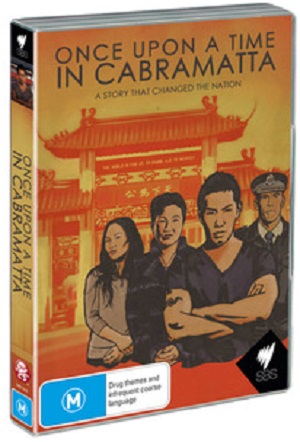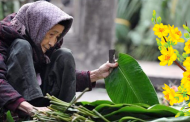
I. Introduction
Apart from nearly half a century working as a TESOL/TEFL teacher as well as teacher of Vietnamese as a Foreign Language in Vietnam and Australia, I have been deeply involved in the field of training interpreters and translators for their BA (I&T) in English-Vietnamese in both directions.
After 14 years teaching at the University of Western Sydney, I decided to take early retirement from UWS in early 1997 to do part-time work (I&T) with CRC (Community Relations Commission), as well as with NAATI (National Accreditation Authority for Translators and Interpreters) as a Member and Chairperson until 2010.
Not long after my early retirement, I was asked to come back to the University to teach on a part-time basis for some time. Then again, in 2009, my part-time teaching was required until 2011 to help some students who were completing their last I/T Units for their BA degree.
During this time, I had the chance to meet with Dr. Jing Han, a university lecturer, who served as co-ordinator of I&T in both Chinese and Vietnamese languages at UWS. In late 2011, the same Dr. Jing Han, who also worked as Manager, Subtitling & Program Preparation, Broadcast Operations, SBS-TV, Australia asked me to participate in subtitling the three-part series DVD documentary film “Once Upon A Time in Cabrammatta” for the Special Broadcasting Services-Television (SBS-TV). I was assigned to work on the first two episodes, and to serve as a checker on the last part of the series done by another Vietnamese subtitler, Tinh Vân, who is a Vietnamese-born SBS-TV translator, and a former SBS-Radio employee under her broadcasting name, Hoàng Lan.
II. Subtitling and Translating: Two Sides of a Coin
Subtitling and translating are the two aspects of the same task; that is, to facilitate the communication between the writer/speaker and the reader/listener and/or to help the readers understand the source text by conveying the ideas through the use of words and meanings in the target language.
In order to do their job appropriately and accurately both subtitler and the translator should be the ones who know the culture and language of both the original and the target country inside out, so they can transfer the source ideas, and in the meantime, deal with subjects that have very specialised vocabulary, idioms, colloquialism, slang, dialects, or collocations (cf. Examples in Footnotes).
III. Subtitling: The Good, the Bad, and the Ugly
There are advantages and disadvantages, as well as challenges in doing this particular subtitling work:
A. The Good: Advantages as compared to Translating
- The images are accompanied by the speech, thus phrases and intonations can be easily picked up from the original language. The audio-visual spontaneity in this case has the advantage of helping the subtitler with a better understanding of the context and hence producing a better translation in his/her mother tongue.
- The phrases and the dialogues are often short and precise, sometimes with pauses, intercepted with exclamation words, such as um, ah, uh, Right, Well, Wow, Bingo… typically reflected from the spoken language, which certainly gives the viewer/subtitler some relaxation and enjoyment.
- A good subtitling work can help the DVD viewers improve their English and Vietnamese listening and reading comprehension skills, as well as their oral practice in terms of pronunciation and intonation.
B. The Bad: Disadvantages as compared to Translating
- The subtitler is required to condense any long-winded, repetitive or disorderly phrases of the interviewee to help the audience fully grasp the main idea (cf. the whole series, mainly English and Vietnamese subtitles)
- The subtitler is required to cut down the subtitled phrases to conform with the time span, which in most cases can only stay on the screen for a few seconds (cf. the whole series).
- The subtitler needs to know who is speaking to whom in order to choose the complex forms of address in the target language, Vietnamese in this case, for clarity and accuracy. (cf. Vietnamese people in general, Mrs Châu Hoàng in particular).
C. The Ugly: Challenges when checking someone else’s work
The extra challenges were found in this particular assignment.
- The subtitler is required to serve as a checker to help the supposedly less competent translator/subtitler’s work, particularly due to the time constraints or urgency of the production.
- Like in most areas involving the choice of words and meanings, one can easily come across the common expression “we agree to disagree”. I feel, whenever disagreement arises, the more experienced subtitler/translator should have the final say.
- In case, the supposedly less competent subtitler/translator feels that he/she has a better choice, in some instances, then nothing can be done, whether or not you feel it should be changed. But, the good thing is “two heads are better than one”, as they say. Problems could be minimised if the subtitlers have their NAATI accreditation at translation professional level in both English and Vietnamese.
IV. Conclusion
As far as I am concerned, film subtitling is a new experience which has become my newly acquired skill. The 3-part series DVD, “Once Upon The Time in Cabramatta”, which lasted almost three hours, roughly 60 minutes for each episode, has attained, from my own humble and modest evaluation, the score of no less than 95 % in terms of subtitling performance. My ‘so-called’ Vietnamese actors/actresses, particularly Angie Hồng, Hiển Lê, Thắng Ngô, and Vincent Đoàn, in the documentary film will probably agree with me, if asked for their opinion.
Sincere thanks and appreciation are extended to the Australian born-and-bred SBS English-language subtitling editors for their tremendous help and assistance, particularly in probably editing the English subtitles and in matching the subtitling phrases with the time span allowed on the screen. They are like invisible people, working behind the scenes, sometimes alongside Tinh Vân and myself, at the SBS Head Office in Artamon.
Frank Trinh
June 2013




FOOTNOTES:
Some actual translation problems or challenges and proposed solutions.
Difficult words and phrases,
mostly taken from Episode 3.
1. At the same time, these stories…
they’re water under the bridge.
[= Something is past history— it’s time to forget about it and move on]
Đồng thời, những chuyện này…
nay cũng như nước chảy qua cầu rồi.
2. it’s like,
“All right, what are you doing?
[= A form of speech expression, in the last ten years questioning himself to think twice]
Thì giống như nói,
“Ờ nhỉ, chuyện xưa rồi kể chi vậy?”
3. But the Vietnamese people
were soon demonised.
[= treated like evil demons]
Nhưng người Việt Nam
chẳng bao lâu sau bị bôi xấu
4. Cabramatta is a tattoo
[= a stain that can’t be removed]
Cabramatta là một vết nhơ.
5. you get grounded
[= when teenagers particularly are told by their parents to stay home and not to go anywhere (except school)]
and that would be about it
Bạn bị bắt chẹt nằm nhà
và chuyện như thế đấy
6. is now a part of Australia
in the here and now.
[= at the present time]
thì nay thành hiện thực ở nước Úc
cả về không gian lẫn thời gian
7. If you did anything that might raise
the profile of the Labor Party
[= to make the Labor Party more known, more visible]
Nếu bạn làm bất cứ điều gì mà có thể Đảng Lao Động được chú ý.
8. to really make inroads
into the drug trade.
[= to try to dent or make some sort of impact to slow the drug trade]
để thực sự làm suy yếu
tệ nạn nuôn bán ma túy.
9. We walked away with many doors
but very few arrests.
[= They had to remove doors to investigate premises]
Chúng tôi tháo gỡ được nhiều cửa
mà bắt chẳng được mấy người
10. the community he once claimed to lead
has battened down the hatches.
[= the community has gone underground or tried to remain invisible]
thì cộng đồng có lần ông nói là ông lãnh đạo
đã âm thầm lui vào thế thủ.
11. He’s in a sense the white knight…
[= the hero, a knight in shining armour]
Chẳng gì thì anh cũng là tay nghĩa hiệp…
12. The summit took to the street
in search of first-hand experience of our drug problem.
[= instead of sitting in an office and making decisions, the conference went out on the street to observe what was happening to decide a new strategy]
Cuộc họp thượng đỉnh xuống đường
để thâu thập kinh nghiệm tại chỗ về tệ nạn ma túy.
13. Death has become part of life
in Cabramatta.
[= drug deaths are an everyday happening in Cabramatta, not unusual]
Cái chết đã trở thành chuyện thường ngày
ở Cabramatta.
14. And the criminal community
in Cabramatta is laughing all the way to the bank.
[= happily counting their money that the drug trade brings them]
Và giới tội phạm ở Cabramatta
thì tha hồ hốt bạc thoải mái.
15. This young fellow came out
and asked if I was right.
[ = if people in shops ask “Are you right?’ They mean “Do you need help?” In this case, the guy wanted to sell drugs]
Chàng trai trẻ này bước ra
hỏi xem tôi có “Ô-kê” không.
16. That’s when I decided
to stop being tactical
[= stop making usual or practised police moves]
Khi đó tôi quyết định
không nhắm vào chiến thuật nữa
17. and be more strategic.
[= but to make a strategic plan]
mà nhắm vào chiến lược nhiều hơn.
18. It must have been
confronting for her
[= very shocked or threatening to her]
Hẳn bà phải bị sốc vì thấy chuyện này
19. First time the Cabramatta community
had the eye of state parliament.
[= Parliament was taking notice, paying attention]
Lần đầu tiên cộng đồng Cabramatta
được quốc hội tiểu bang chú tâm đến
20. to Phuong Ngo removed from the scene
[= out of the picture – not there anymore]
khi Phương Ngô được lôi ra khỏi hiện trường

Once Upon A Time In Cabramatta
DVD $29.99
Usually dispatched within 7-15 days (subject to availability)
Description
Once Upon a Time in Cabramatta is the untold story of how the Vietnamese community overcame the odds and found their place in multicultural Australia. The story begins with the landmark decision of Prime Minister Fraser to open Australia’s doors to thousands of refugees at the end of the Vietnam War. It is a moment in history that finally buries the infamous White Australia Policy and transforms a nation. The years that follow are as dramatic as they are turbulent – a people struggling to find their place in a foreign land. In this one tiny Sydney suburb, the 80s and 90s see the arrival of street gangs, a heroin epidemic and the first political assassination in Australia’s history. But as the century draws to a close there is a remarkable turnaround. The Vietnamese people finally find their voice – speaking up to claim their rightful, democratic place in their adopted home. Cabramatta is a community transformed. Australia, a continent changed forever.














































